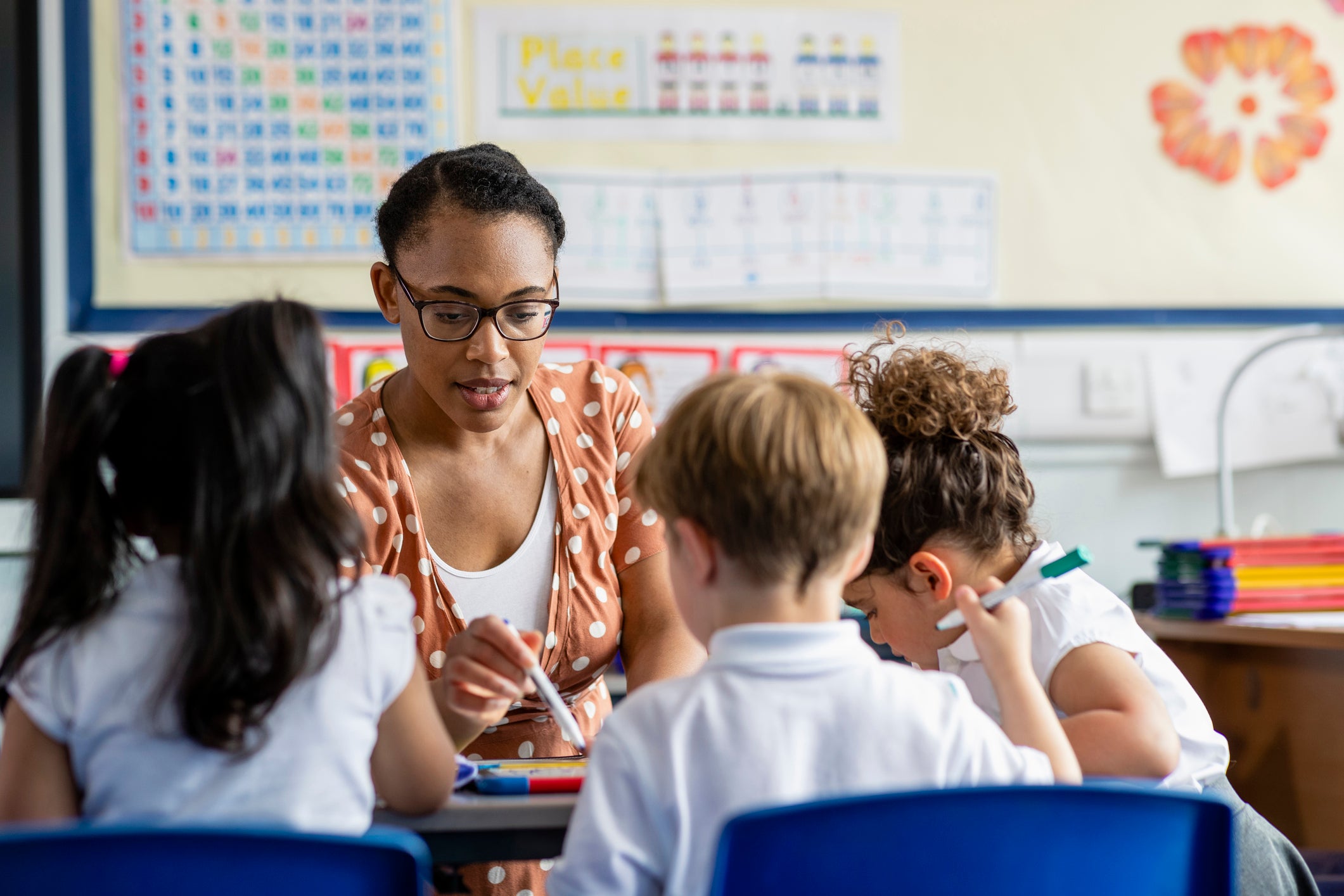We should support the ban on children being excluded from primary school
Exclusions don’t work because they fail to address the underlying reasons for difficulties a child may have


Your support helps us to tell the story
From reproductive rights to climate change to Big Tech, The Independent is on the ground when the story is developing. Whether it's investigating the financials of Elon Musk's pro-Trump PAC or producing our latest documentary, 'The A Word', which shines a light on the American women fighting for reproductive rights, we know how important it is to parse out the facts from the messaging.
At such a critical moment in US history, we need reporters on the ground. Your donation allows us to keep sending journalists to speak to both sides of the story.
The Independent is trusted by Americans across the entire political spectrum. And unlike many other quality news outlets, we choose not to lock Americans out of our reporting and analysis with paywalls. We believe quality journalism should be available to everyone, paid for by those who can afford it.
Your support makes all the difference.When children start primary school, most of the worries parents have for those early years are around whether they will make friends, settle in or be able to keep up with what’s expected. However, for some children, this journey becomes a difficult one almost as soon as it begins.
The Commission on Young Lives report today argues for a ban on primary school exclusions from 2026, alongside support and resources for schools to provide specialist provision that keeps children in school.
Unfortunately, the number of suspensions and exclusions in primary school are increasing.
In the last full term before Covid, there were 30,000 suspensions, while permanent exclusions increased by 20 per cent in primary schools compared to 3 per cent in secondary schools. The disruption of the past two years have led to increased demand for mental health services for children and we are yet to see the full impact of the pandemic on children, including an increase in behavioural difficulties.
Although the numbers affected each year are much smaller than those at secondary school, each of these children should matter – and each exclusion represents disruption to a child’s early experiences of education which can last a lifetime.
Exclusions don’t work because they fail to address the underlying reasons for the difficulties a child may have in class. Instead, children are simply passed on to another institution, another classroom and another teacher but with the added stress of the exclusion itself.
Exclusions are also disproportionately used with Black Caribbean boys and young men, as well as Gypsy, Roma and Traveller (GRT) children, children with special educational needs or disabilities (SEND) and those eligible for free school meals (FSM). The education system needs to challenge society’s inequalities rather than replicate them so that schools are places where all children can achieve their potential and flourish.
At Chance UK, one in seven of children we worked with last year had been excluded – we heard recently from a mum whose child was suspended 17 times while he was in reception and another whose child was only five when he was permanently excluded for the first time.
A large scale study showed that children with mental health problems and psychological distress were more likely to be excluded in the first place, but exclusion also increased levels of psychological distress three years later, creating a vicious circle. One parent told us: “the more they failed him, the worse his behaviour became. It became so bad, he began cutting himself”.
A history of suspension and exclusion can also follow a child. One parent said to me recently: “I am worried about what will happen at secondary school. My son says to me ‘what if I can’t get into school?’ I know he’s scared and I have to fight back tears when I think about it. I don’t want them to look at his past and think about that rather than his future.”
To keep up to speed with all the latest opinions and comment, sign up to our free weekly Voices Dispatches newsletter by clicking here
At the moment there is just not enough specialist help available – we see children who are on waiting lists for specialist support when they are first referred to us. And when our intervention ends nine months later, many are still waiting to receive help. So, it’s vital that teachers and schools feel supported and have the right resources in place to be able to work with children.
Those schools committed to reducing exclusions acknowledge the hard work that is needed to make this change happen.
One school we work with says: “It would be much easier to exclude than to do all the work that the school is doing, but the children are worth the effort.”
There is some brilliant work going on in our schools and they do a good job for the majority of their students but we can’t look away from the difficulties some of our children face – for them the system is not working.
Geethika Jayatilaka, CEO of Chance UK – a charity providing early intervention support to children age 5-13 and their families to help them develop social and emotional skills
Join our commenting forum
Join thought-provoking conversations, follow other Independent readers and see their replies
Comments